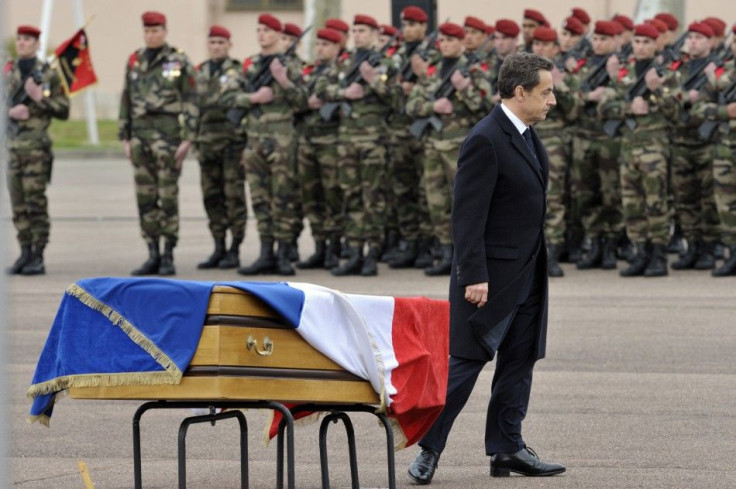Sarkozy's Knee-Jerk Terror Reaction Raises Concerns Among Rights Activists, Scribes In France

French President Nicolas Sarkozy announced a series of tough measures in the wake of a string of killings in southern France by an Islamist terrorist. However, the President's new proposal to jail frequent visitors of terror-linked Websites has raised concern among journalists and legal experts in the country.
Anyone who regularly consults internet sites which promote terror or hatred or violence will be sentenced to prison, Sarkozy said in a campaign rally in Eastern France, the Associated Press reported. What is possible for pedophiles should be possible for trainee terrorists and their supporters, too, he added.
In the law proposed by Sarkozy, anyone who frequents extremist Websites or other online platforms that promote terrorism or hatred will face imprisonment. He announced these extreme measures in a televised interview and said that stern action is required to prevent further terror attacks in the country.
However, the new proposals raise apprehensions regarding their implementation and the impact they will have on freedom of expression in the country. Many in the country feel that the government has gone overboard in its reaction to the murder spree by announcing measures that might curtail human rights in the country.
The new proposal states that even a visit to a Jihadi site by anyone can land him in jail, irrespective of the reason for such visit. Researchers or journalists will also come under the radar if they visits such Websites to gather information for their professional needs. What is disturbingly unclear is how this system of rules will help authorities effectively correlate a visit to a terror Website with a person's intention to commit a crime.
It is also uncertain as to how the government is going to implement the new proposal. Implementation of any such stringent law means continuous scrutiny of Websites and web traffic. This would require an Internet surveillance system and any such move would negatively impact freedom of expression of the citizens and their basic right to privacy.
What's especially worrying for us is how you are going to know who's looking at what site. Does this announcement mean the installation of a global Internet surveillance system in France? said Lucie Morillon, who runs the new media bureau of journalists' watchdog group Reporters Without Borders to the Associated Press.
The critics feel that though law and order and influence of Islamic militancy in the country are a major election issue and there is mounting public resentment against the extremist influence in the country, the new proposals are more of a knee-jerk reaction to the incident.
It might help Sarkozy, who has always towed the right-wing extremist line, boost his image by leveraging the public sentiments ahead of the elections. But it might not help contain the rising militancy in the country.
The French press is also divided on the issue of France dealing with the extremist forces, after the horrifying killings by suspected gunman Mohamed Merah in southern France.
A BBC report that analysed the stand taken by prominent French newspapers on the issue says that a major section of the media, such as Le Figaro, endorses Sarkozy's hard-line right-wing views, while Le Monde draws attention towards the fact that the country might be in danger of losing its character of tolerance by succumbing to the pressures.
Though Sarkozy camp for sure will try to leverage the public resentment in the country against the terrorist killings, it is yet to be seen how the new proposal would do any good in curtailing extremist elements in the country.
© Copyright IBTimes 2024. All rights reserved.






















